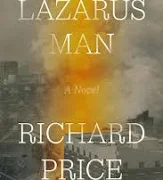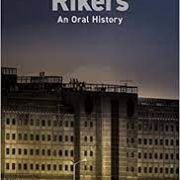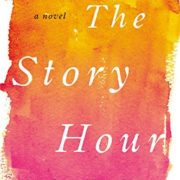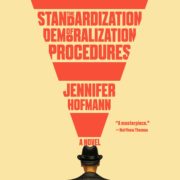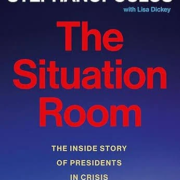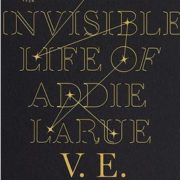Harlem Shuffle by Colson Whitehead
Heist tales lend themselves well to a cinematic telling. The visuals are all there, from the hushed planning to the eye-darting execution. Sometimes you think the crew might just make it out with the goods. Other times you just know they are doomed from the start. But what of a heist novel? I didn’t think I had ever read one. This past summer, however, I knew this was about to change; for Colson Whitehead was set to publish Harlem Shuffle, a heist novel.
Whitehead is literary gold. He’s won the National Book Award and—count them—two Pulitzer’s. In The Underground Railroad, grim reality paired with magical realism to describe two slaves escaping a brutal Georgia plantation aboard an underground railroad system that’s literally an underground railroad, an antebellum allegory of fleeing slavery. Devastation continued in The Nickel Boys, which detailed the abuse in a Jim Crow-era reform school. Heavy reading, both.
Harlem Shuffle is a welcomed exhale. But it’s still a Colson Whitehead novel, so you would be safe in supposing that it’s both good and hard edged. It just has to be. And you would be right on both accounts.
We follow Ray Carney, the proprietor of a Harlem furniture store. It’s 1959 and Carney struggles to make the rent for his family. It doesn’t help that his in-laws treat him as though he’s beneath their daughter. Every interaction feels as though they are waiting for her to “wake up to the poverty of her choices.” Never mind that his mother died when he was young, thus leaving him to the whims of a neglectful father. His father was indeed a crook, but Ray learns one unintended lesson from him: “living taught you that you didn’t have to live the way you’d been taught to live.” And never mind that, despite all this, he earned a college degree. To them, he’s just a “rug peddler.”
Carney so badly wants to move his family out of their cramped, noisy apartment and onto a more respectable block that he often embarks on long walks just so he can gaze at coveted apartment buildings and dream. But, to be sure, he needs money for this to manifest. It helps that his cousin Freddie will occasionally show up at the furniture store with random stolen goods that Carney unloads for a cut. These are small risks with small payouts.
Freddie changes this risk/reward ratio by partnering with a hardened group of criminals. Their plan is to rob the Hotel Theresa, a Harlem icon. And it’s more than just about making a high-dollar score. Black Harlem residents like Carney’s in-laws live in a neighborhood called Strivers’ Row. This Harlem echelon, along with Theresa’s past reputation of Harlem sophistication, wore on some Harlem residents because they knew none of it was for them. Carney knows part of the reason his in-laws disapprove of him stems from the color of his skin. Even they think he’s too dark. This job would bring bourgeois “black Harlem down a notch.”
Not that Carney initially wants anything to do with it. He’s a furniture salesman, not a crook. It’s because of Freddie’s big mouth that these other criminals even know of Carney, that they think he’s the one to move the stolen Theresa jewelry via his merchant connections.
Carney has a choice to make, telling Freddie that he will sleep on it before he decides. “A night of Carney staring at the ceiling was enough to close the deal, the cracks up there like a sketch of the cracks in his self-control.” He grew up not wanting to be a crook, but he also can’t deny that he grew up surrounded by criminals and their lifestyles. Moving stolen goods provides a small thrill to an otherwise mundane life, “a zap-charge in his blood.” The heist goes down, and the rewards and repercussions are meted out according to streetwise maneuverings.
Years go by and we find a more prosperous Carney. The furniture store is doing well and he’s being courted by the elite Dumas Club, which restricts membership to Harlem’s professional class only. (Carney’s father-in-law is a member.) Yet even then, if Carney wants to get in, it’s going to be a decorous dance.
Carney also takes a second job: plotting and exacting revenge. This second job has him “keeping crooked hours,” going to sleep a little earlier and then waking up for the night work. “Midnight, rise and shine.” It’s an hour “when the con polishes the bait and the embezzler cooks the books.” And we have the pleasure of reading all about what he’s up to.
We end in 1964, with Harlem changing. All of New York City is changing. Whitehead takes us through the riot that happens that year, with Carney not only trying to protect his store but to keep order both with the choices he’s made and with the unpredictable actions of his various associations. Throughout the novel, this city is alive, its own character. We already know that some streets and establishments in the city are not for the faint of heart. It’s one thing to call them dangerous and potentially wild, but it’s much better to read how Whitehead writes them, as with this one bar: “The atmosphere in Nightbirds was ever five minutes after a big argument and no one telling you what happened.”
A lot goes on in Carney’s life, so it’s easy to miss that no one really knows him. His family is his one constant (aside from his store). Yet even when he’s with his wife and kids, he seems distant (partly because he keeps his criminal life secret). It’s not until the moments when he’s in imminent physical danger does he seem to yearn for them. During one instance when someone is pointing a pistol at him he thinks of “his sleeping wife and daughter on their safe bed. That little lifeboat aloft on the dark and churning Harlem sea.”
Carney doesn’t fit in with the crooks nor the Harlem elites. That’s unfortunate, because those are the only two groups of people he knows. Still, he’s a survivor in the engine known as New York City. Early in the novel, during one of his apartment dream-walks at night, he imagines himself and his family in an apartment building on Riverside Drive, on a floor high enough where he can see the Hudson River. “With his hands on the sill, he’d look out at the river on nights like this, the city behind him as if it didn’t exist. That rustling, keening thing of people and concrete. Or the city did exist but he stood with it heaving against him, Carney holding it all back by sheer force of character. He could take it.” Whitehead wrote an entertaining heist novel, yes, but it’s also so much more.

